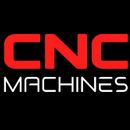Titanium Fasteners: Strength, Durability, and Modern Applications

Titanium Fasteners: Strength, Durability, and Modern Applications
In industries where weight reduction, corrosion resistance, and high tensile strength are paramount, titanium fasteners have emerged as a premier choice. Whether securing aerospace components or supporting critical medical devices, titanium’s unique combination of properties helps these fasteners withstand harsh environments while minimizing structural loads. Below, we examine why titanium fasteners are sought after, how they are manufactured, and where they find the most significant applications today.
Why Titanium Fasteners Matter
Lightweight Strength
Titanium boasts a strength-to-weight ratio superior to many traditional metals such as steel or aluminum. This advantage is especially valued in the aerospace and automotive industries, where every ounce trimmed translates to improved fuel efficiency or performance.
Corrosion Resistance
In marine, chemical, or biomedical contexts, titanium fasteners maintain their integrity under prolonged exposure to saltwater, chlorides, and other corrosive agents. This natural oxidation layer acts as a barrier that defends the metal from further deterioration.
Biocompatibility
For medical implants or prosthetics, titanium’s non-toxic and biocompatible properties ensure minimal risk of rejection. Orthopedic surgeons commonly use titanium screws, plates, and rods due to their compatibility with human tissues.
Common Grades of Titanium for Fasteners
- Grade 2 Titanium
- Often referred to as “commercially pure” titanium.
- Provides a good balance of ductility and strength.
- Useful for standard bolts, nuts, and washers in moderate service conditions.
- Grade 5 Titanium (Ti-6Al-4V)
- Higher strength alloy containing aluminum and vanadium.
- Industry-favorite for high-stress applications like aerospace engine parts or automotive racing components.
- Delivers outstanding strength and thermal stability.
- Grade 23 Titanium
- A modified version of Grade 5 with lower oxygen content.
- Optimized for biomedical implants, often used for screws and rods that remain in the human body long-term.
Manufacturing Titanium Fasteners
Raw Material Preparation
Titanium stock typically arrives as bars, rods, or wire. Precision forging or extrusion processes help shape these raw materials into near-net shapes for subsequent machining, reducing material waste and production time.
CNC Machining and Threading
Advanced CNC (Computer Numerical Control) lathes and mills carve threads and heads with micron-level consistency. Multi-axis operations allow for complex head geometries such as hex, Torx, or countersunk designs. Maintaining tight tolerances is crucial for ensuring reliable load distribution and preventing galling.
Heat Treatment and Finishing
Many titanium fasteners undergo specialized heat treatments, such as annealing or solution treating, to optimize mechanical properties. Surface treatments like anodizing may also be applied to improve both the fastener’s corrosion resistance and color-coding capabilities.
Quality Control
Non-destructive testing (NDT) techniques—including eddy current or ultrasonic inspections—detect internal flaws or discontinuities. Dimensional checks with precision instruments verify the fastener’s thread pitch, major/minor diameters, and head conformity, guaranteeing a fit that matches industry standards (e.g., ASME, ISO).
Key Applications of Titanium Fasteners
1. Aerospace and Defense
From airframe assembly to high-temperature engine sections, aerospace engineers rely on titanium bolts and screws to keep weight minimal without sacrificing strength. Defense applications, such as naval ships and submarines, also benefit from titanium’s corrosion resistance in saltwater environments.
2. Automotive and Motorsport
Titanium fasteners have become synonymous with performance upgrades in racing cars and high-end sports vehicles. Reduced weight on moving parts like wheels, engine components, or suspension assemblies translates to faster acceleration and better handling.
3. Marine Engineering
Boats, offshore platforms, and underwater robotics experience extreme corrosion challenges. Titanium fasteners protect these systems from rust and pitting, prolonging service intervals and reducing costly downtime.
4. Medical Devices
Orthopedic surgeons use titanium screws, plates, and rods for fracture repairs or joint replacements. Dental implants and prosthetic accessories also benefit from titanium’s biocompatibility, supporting long-term success rates and patient comfort.
5. Chemical Processing
Certain industrial sites handle aggressive chemicals, acids, or chlorides. Titanium fasteners in chemical plants or pharmaceutical settings help maintain a sanitary environment and ensure equipment remains sealed under corrosive conditions.
Economic Considerations
Titanium’s premium cost often deters some industries from widespread adoption. However, lifecycle analyses can reveal cost savings when factoring in the metal’s extended service life and reduced maintenance. Moreover, technological advancements in 3D printing and additive manufacturing hold promise for lowering material waste and bringing down overall production costs.
Future Trends and Innovations
As lightweighting remains a central focus across transportation and industrial sectors, the demand for titanium fasteners is expected to grow. Research on new alloys, surface coatings, and cost-effective machining techniques may enable broader adoption beyond high-end applications. In particular, methods that refine powder metallurgy or accelerate additive manufacturing may unlock more accessible pricing, paving the way for smaller manufacturers and consumers to benefit from titanium’s exceptional properties.
Conclusion
Titanium fasteners stand out for their high strength-to-weight ratio, corrosion resistance, and biocompatibility. While often associated with demanding environments like aerospace, motorsports, or chemical plants, they’re also finding broader uses in any application that requires robust yet lightweight solutions. With ongoing improvements in alloy development, machining processes, and material cost management, titanium fasteners are poised to remain a pivotal element of modern engineering—reinforcing structures, enhancing performance, and driving innovation in countless industries worldwide.


